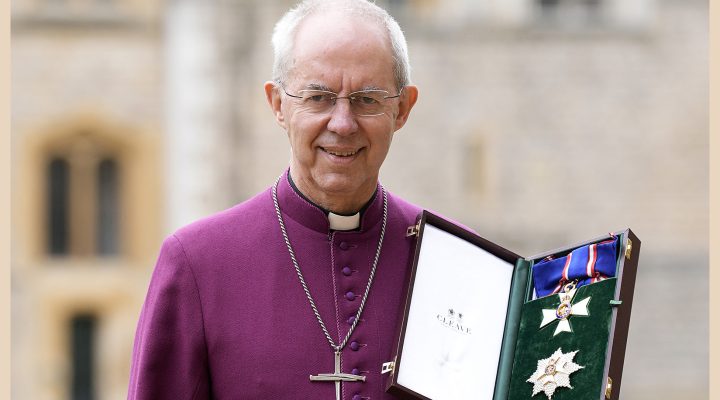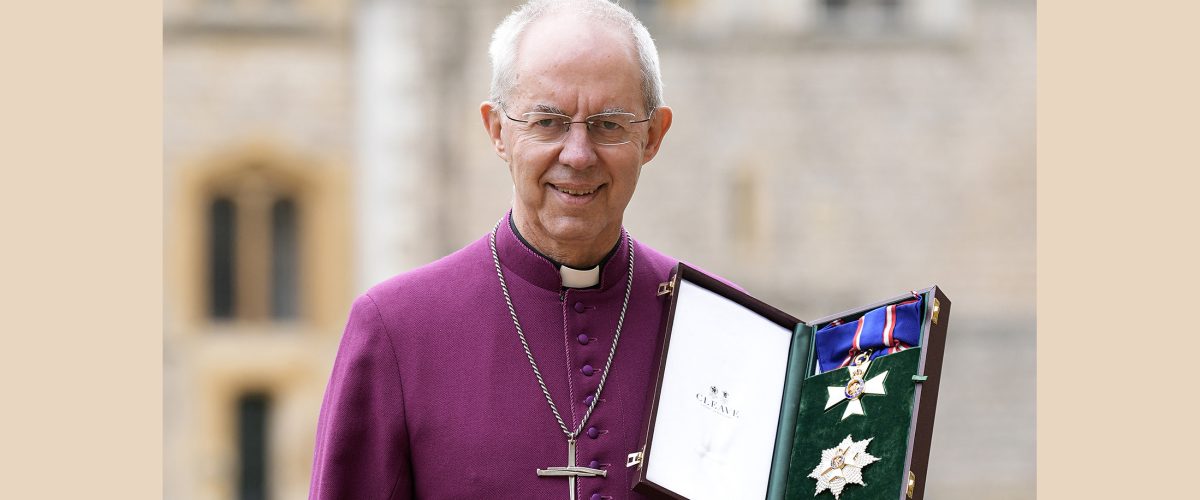In the wake of a scathing report about an abuse coverup, the archbishop of Canterbury has announced his resignation.
“It is very clear that I must take personal and institutional responsibility,” said the archbishop, Justin Welby, in a Nov. 12 statement. “I hope this decision makes clear how seriously the Church of England understands the need for change and our profound commitment to creating a safer church.”
“Despite the efforts of some individuals to bring the abuse to the attention of authorities, the responses by the Church of England and others were wholly ineffective and amounted to a coverup,” said the report.

John Smyth
The archbishop of Canterbury is the senior cleric in the Church of England and is considered as the spiritual leader of the Anglican Communion, a faith group which includes the Episcopal Church in the United States and which holds more than 85 million members across the globe.
In the 251-page independent report — called the Makin Review — investigators found Welby had failed to tell police about the serial abuses of John Smyth, a powerful attorney who volunteered at evangelical Christian summer camps and who also met boys and young men through speaking engagements at universities and a private school.
Smyth was found to have sexually, psychologically and physically abused about 30 boys and young men in the United Kingdom, with abuses dating back to the 1970s. He was then allowed to move abroad, where he continued with impunity, with the result that about 85 boys and young men were abused in Zimbabwe and South Africa.
Smyth died in South Africa in 2018.
According to the report, Welby was informed about Smyth’s abuses as far back as 2013, and Welby’s own statement acknowledges “the long and retraumatizing period between 2013 and 2024” when there was a “conspiracy of silence.”
Church officers and others were made aware of Smyth’s abuses as far back as 1982, and yet, as the report pointed out, they failed to take steps to prevent further abuse.”
In one of its key findings, the report made clear that “further abuse could and should have been prevented,” and that “victims were not sufficiently supported.” There was, as the report stated, “a distinct lack of curiosity shown by these senior figures and a tendency toward minimization of the matter.”
When the report was first released last Thursday, Welby said he would not resign. However, a petition calling for his resignation quickly gathered more than 14,000 signatures, putting pressure on Welby to step down.
The report described Smyth’s abuses as “prolific, brutal and horrific.” Smyth convinced his victims that “the way to Christ was through suffering.”
Lee Furney, a survivor of abuse by a different Anglican leader who was known as the “pope of evangelical conservatism,” commented on the profound impact of Smyth’s abuses. The victims “have lost homes, wives, health and even their minds,” Furney said.
The Makin Review made 27 specific recommendations, including “the development of a wholly independent body, free from direct influence by senior church officers, to guide the development of the church’s safeguarding procedures.” It also said the church should seek “independent assurance as to the robustness of the church’s whistleblower procedures” so as to ensure that “credible suspicions of abuse and the risks of a coverup can be reported and investigated.”
As someone who has spent two decades urging abuse safeguards in the Southern Baptist Convention, I can’t help but see parallels between the Makin Review and the 2022 Guidepost Report, which found the SBC Executive Committee ignored abuse reports “even if it meant convicted molesters continued in ministry” and treated survivors with stonewalling and hostility.
“It is a rare example of a high-level religious leader being held accountable for the enablement and coverup of abuse.”
Instead of accountability for those named in the Guidepost report, we have seen some of the SBC’s highest leaders, including Executive Committee Chair Philip Robertson, trying to discredit the report and sow doubt about the extensive documentation of the SBC’s mishandling of abuse.
We even have former SBC President Jack Graham acting as faith adviser to Donald Trump, notwithstanding the fact that the Guidepost report cited Graham’s prominent Prestonwood Baptist Church as an “example of protecting sex abusers.”
So long as there is no accountability for religious leaders who enable abuse, you can be sure abuse perpetrators will persist. This is why Welby’s resignation is so significant: It is a rare example of a high-level religious leader being held accountable for the enablement and coverup of abuse.
Like the Makin Review, the Guidepost Report also made recommendations, but they have been mostly ignored. The SBC’s purported Abuse Reform Implementation Task Force ended its work without implementing much of anything — without a single name of any abuser on any independently administered database, without any robust whistleblower procedure, and without any long-term plan or funding for reforms.
So, what will the Church of England do now? Will it follow through on the recommendations of the Makin Review or will Welby’s resignation be a one-time oddity? Will we see reform efforts quickly fizzle as they have in the SBC? Or will the momentum toward reform continue?
Archbishop Welby’s resignation is a good step, but it should be only a beginning, not an end. Many more religious leaders need to be held accountable for abuse enablement — religious leaders within the Anglican Communion and also within other faith groups such as the SBC.

Christa Brown
Christa Brown, a retired appellate attorney, is the author of Baptistland: A Memoir of Abuse, Betrayal, and Transformation. Follow her on X @ChristaBrown777.
Related articles:
The two men behind the possible schism in the Church of England | Analysis by Kristen Thomason
Church of England won’t allow same-sex marriage but may allow a liturgical blessing of civil unions


